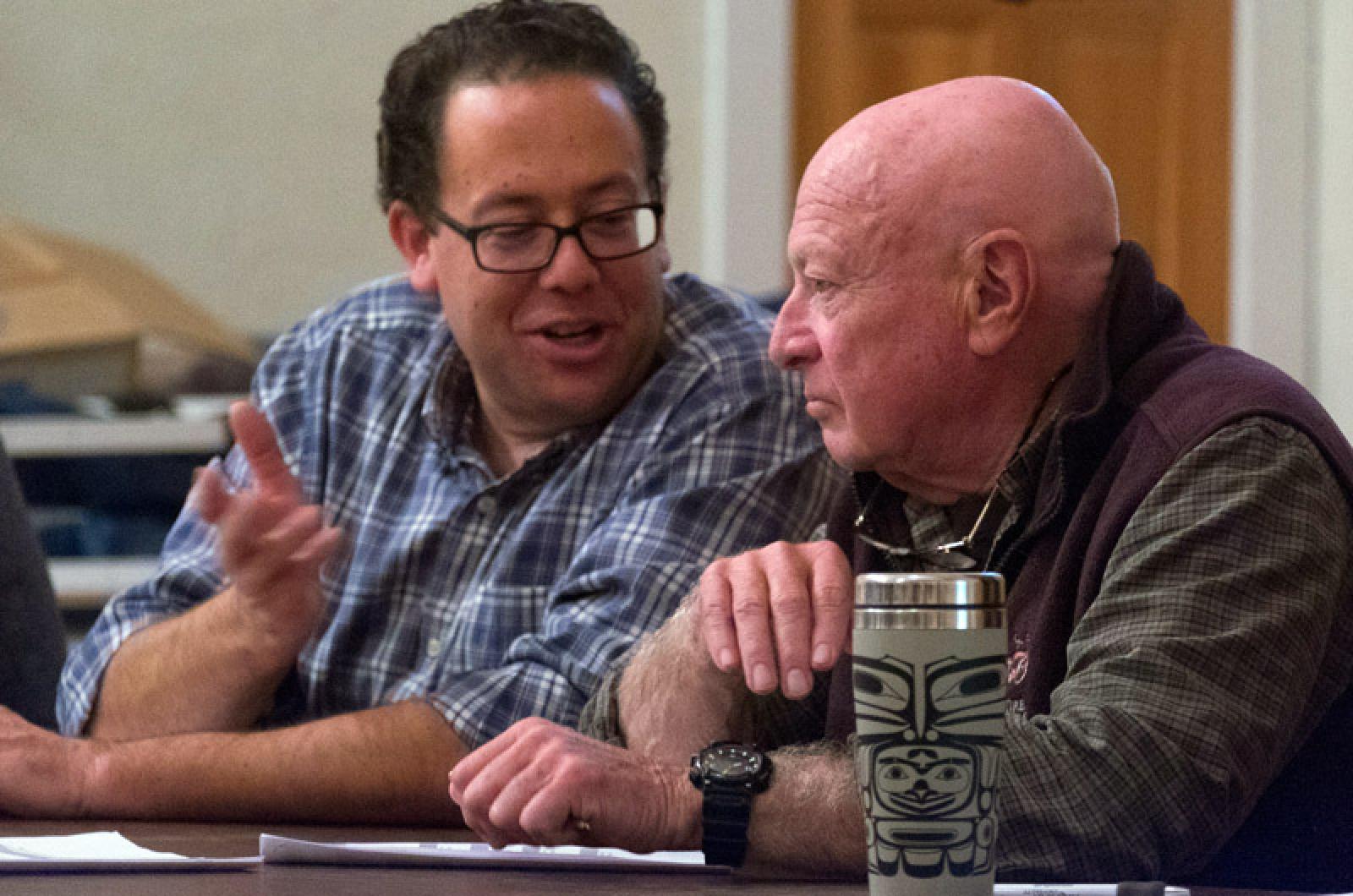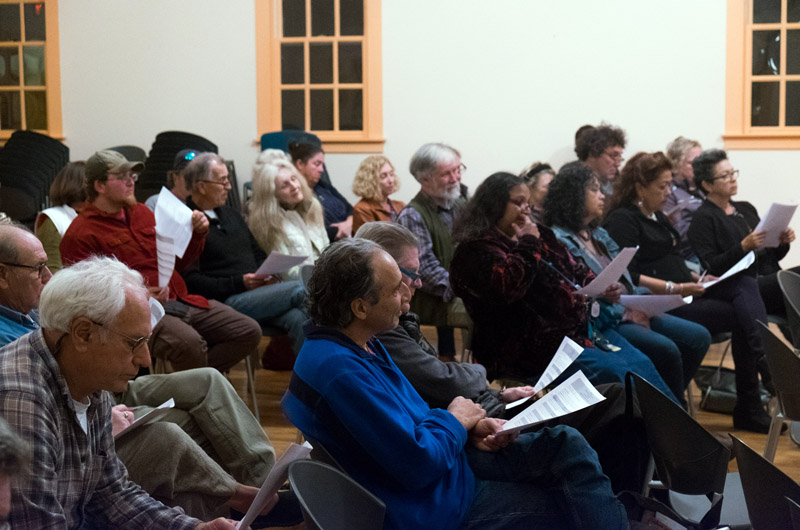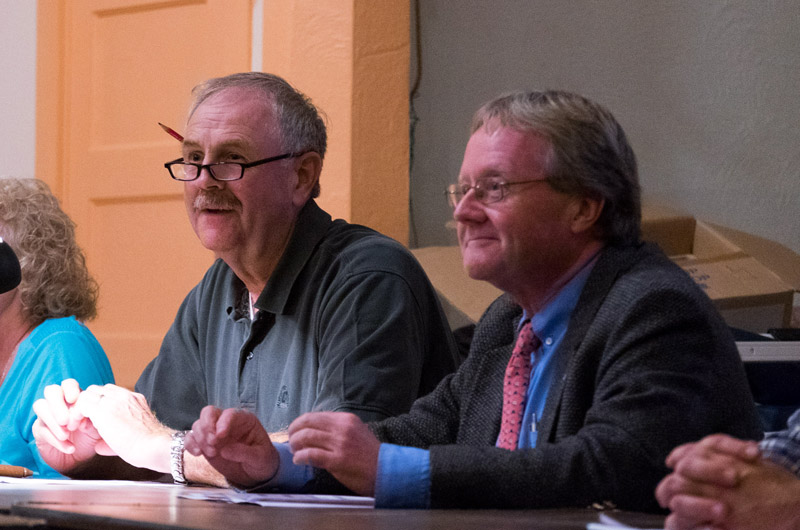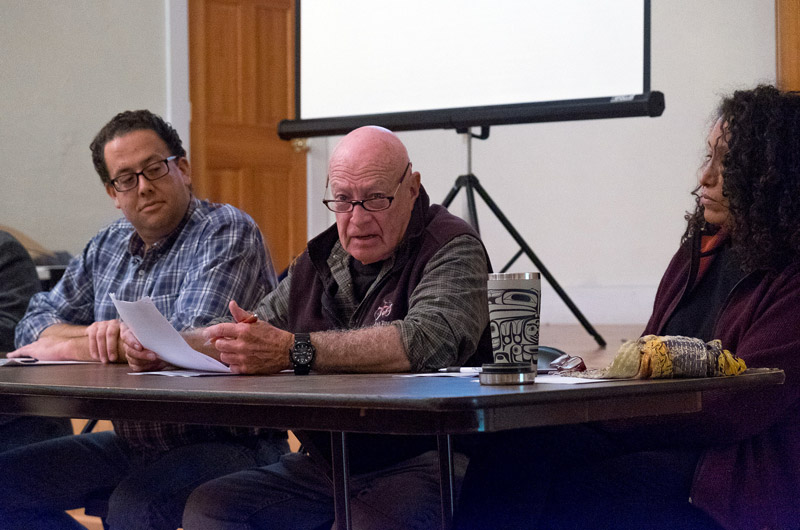Aquinnah voters on Tuesday sped through a 10-article special town meeting warrant — the first of the season on the Island — approving $111,200 in spending proposals, including projects at the town hall campus, Philbin Beach and Aquinnah Circle.
Four articles were tabled by town officials during the meeting. But of the four requests for Community Preservation Act funds, totaling $47,500, all but one passed unanimously.
Several people questioned a proposal to spend $6,500 in CPA money for students and faculty at Conway School of Landscape Design to conduct a planning process for Aquinnah Circle. Faculty and students at the school had visited the Gay Head Light in September, at which time the town had sought their help in planning for the Circle.
The project will include both short and long-term planning, with input from the community. “It fits in very well with all the energy that has been going up at the circle,” community preservation committee chairman Derrill Bazzy said Monday, noting the relocation of the Gay Head Light in May and the town’s application to be considered a cultural and historic district by the state. He added that most planning agencies would charge much more for their work.
Elise LeBovit argued that the planning effort was premature, since the town has not come up with recommendations of its own, and that reaching out to non-residents would be counterproductive. “It just seems like it’s taking it away from us,” she said, suggesting that town residents, tribal members or local students could lead the effort themselves.
Mr. Bazzy countered that the school’s role would be “to facilitate our visioning,” and that the town would not be bound by the school team’s recommendation. “We will own the process,” he said.
But others also advocated for a more cautious approach.
Gabrielle Whitcomb, who grew up in Aquinnah and now lives in West Tisbury, had studied the Circle as a graduate student in landscape design at the University of Massachusetts. She called it a sacred space that people from out of town might not fully appreciate. “I’m afraid what happens is, they come in, then they give you some grand idea,” she said, offering the results of her own study free of charge. She later added that students may see the Circle as a void to be filled, rather than as a gathering place or natural area. “The beauty is in its un-doneness,” she said.
In the end, however, the town voted 34-10 to approve the spending.
Other community preservation requests included $5,000 to help pay the mortgage on the Vanderhoop Homestead at the Circle, which the town acquired in 2003; and $21,000 for the town’s portion of a project to bury the power lines at the Circle.
Eversource Energy has offered to do almost of the line work for $135,000, about a third of what the town had expected to pay. “They really went out of their way to make this happen,” Mr. Bazzy said. The town would still need to pay about $5,000 for the burial of one line that connects to a town-owned building at the Aquinnah Shops.
Mr. Bazzy reported that state Rep. Tim Madden and state Sen. Dan Wolf both believe the project would qualify for funding under a program that Gov. Deval Patrick set up for storm protection and infrastructure development in coastal communities. He added that the town’s support for the project would strengthen the case for state funding.
Ongoing efforts to improve access to Philbin Beach made progress on Tuesday with the appropriation of $30,000 for engineering, permitting and construction of a boardwalk over the dunes. “Residents have been waiting years for something like this to happen,” said Sarah Thulin, a member of the town’s beach access committee, which is also working to improve handicapped access to Red Beach.
Half of the $30,000 will come from community preservation funds and half from the town’s free cash account. But Ms. Thulin believed that more money would be needed. Tom Murphy pointed out that the community has already donated about $6,000 to the efforts, demonstrating its support.
The work of the campus planning committee also reached a milestone, with the appropriation of $30,000 for repairs and improvements to the police station, and $15,000 to redesign and improve office space in town hall. Selectman and planning committee chairman Spencer Booker said the police station was overcrowded and “in dire need of repair.” He said the renovations would reconfigure the existing space without increasing the footprint of the building.
A large portion of the money for the town hall improvements will go toward the basement of the Old Town Hall, which houses the office of the Department of Public Works. Mr. Bazzy, who serves on the planning committee, said a conceptual plan for the campus has been drawn but needs selectmen approval. He said the main feature of the plan is dividing the selectmen’s office in half. “We just didn’t want to go too far until we knew that the money would be available for it,” he said.
Voters also approved $3,700 for a new computer server in town hall.
All of the remaining articles were tabled, some as a matter of necessity, since the town’s free cash account has still not been certified for fiscal year 2015. Town administrator Adam Wilson explained after the meeting that a turnover at the Department of Revenue this year had slowed the certification process, and the town had to work off its remaining free cash from last fiscal year.
Articles to revisit at the annual town meeting in the spring included a request for $59,475 to replace the amount taken from the general stabilization account in January to make up for a budget deficit, and a request for $5,000 for a new copy machine in town hall.
Selectman Jim Newman argued that an article asking for $2,500 for an interim examination of property assessment, which had been tabled at the annual town meeting in April, was still unnecessary, since the board of assessors had more than $9,000 in its special projects fund. The board had resubmitted the article, but it was again tabled.
After the meeting, Mr. Newman cited some concerns over the activity of the assessor’s office in general, including the issuing of tax bills to a non-profit organization. Those concerns had led the selectmen to propose having a ballot question to determine whether to make the assessors appointed rather than elected, effectively bringing them under the purview of the selectmen. That article was also tabled.
“It just seemed too abrupt, and an insensitive way to introduce it,” Mr. Newman said of the article.
Mr. Wilson said after the meeting that the topic was important enough to wait until the annual town meeting in the spring, when more residents would be able to comment. The selectmen plan to hold a public hearing to address the matter prior to the annual town meeting.










Comments (2)
Comments
Comment policy »